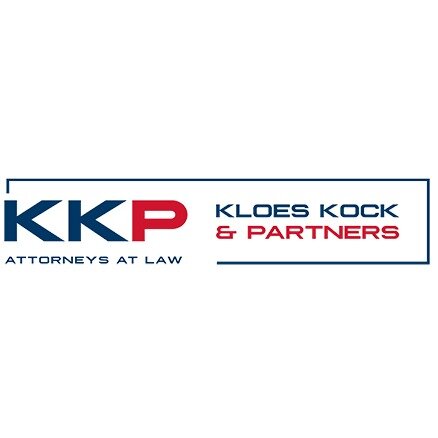Best Equity Capital Markets Lawyers in Aruba
Share your needs with us, get contacted by law firms.
Free. Takes 2 min.
Or refine your search by selecting a city:
List of the best lawyers in Aruba
About Equity Capital Markets Law in Aruba
Equity Capital Markets (ECM) law in Aruba deals with laws, regulations, and practices associated with raising capital through equity, such as issuing shares to the public or private investors. Aruba, as a constituent country within the Kingdom of the Netherlands, has its own set of financial regulations that govern the establishment, operation, and oversight of equity financing activities. The regulatory environment is crafted to foster a safe and attractive business and investment climate while ensuring compliance with local and international standards.
Companies seeking to grow or investors looking for opportunities often turn to equity capital markets as a means to raise funds or invest in businesses. This framework is critical for supporting local businesses and attracting international investors to Aruba.
Why You May Need a Lawyer
Navigating the equity capital markets in Aruba involves understanding and complying with complex legal requirements. You may need the assistance of a specialized lawyer in the following situations:
- Planning to raise capital through an initial public offering (IPO) or private placement.
- Seeking to invest in Aruban companies or funds.
- Ensuring compliance with securities laws and regulatory filings.
- Advising on mergers, acquisitions, and restructuring involving equity exchanges.
- Reviewing or drafting prospectuses and disclosure documents.
- Dealing with cross-border investments or dual listings.
- Understanding taxation implications related to equity transactions.
- Resolving disputes involving shareholders or regulatory authorities.
Legal professionals provide guidance that helps companies and investors avoid unnecessary risks, comply with the law, and protect their interests.
Local Laws Overview
Several local laws and regulatory bodies govern Equity Capital Markets in Aruba. Here are the key aspects you should be aware of:
- Financial Supervision: The Central Bank of Aruba (CBA) plays a major role in supervising and regulating financial activities, including securities offerings and market conduct.
- Company Law: The Aruba Commercial Code sets out the rules for company formation, share structures, shareholder rights, and duties of directors.
- Securities Regulation: Any public offering or trading of shares is subject to disclosure obligations and may require approval from the CBA or other authorities, ensuring investor protection and transparency in the market.
- Anti-Money Laundering (AML) and Counter-Terrorism Financing (CTF): Strict AML and CTF laws apply to all sizeable financial transactions, including equity investments.
- Cross-Border Compliance: Transactions involving foreign investors or companies must adhere to both Aruba’s laws and any relevant international agreements or treaties applicable through the Kingdom of the Netherlands.
Staying updated with new legislation and regulatory guidance is essential, as Aruba continually updates its legal and financial framework to align with international best practices.
Frequently Asked Questions
What is an equity capital market?
An equity capital market is a marketplace where companies raise funds by issuing shares and where these shares can be bought and sold by investors.
Can non-residents invest in Aruban equities?
Yes, non-residents can invest in Aruban equities, although there may be specific reporting and compliance requirements, especially for larger transactions or when foreign exchange controls apply.
What are the basic legal requirements for a public offering in Aruba?
A public offering generally requires registration with the Central Bank of Aruba, preparation of a prospectus, disclosure of key financial data, and adherence to anti-fraud regulations.
Does Aruba have its own stock exchange?
Aruba does not have a domestic stock exchange at this time. However, Aruban companies often list on international exchanges or facilitate private placements under local laws.
Are there regulations on insider trading?
Yes, Aruba follows international standards to prohibit and regulate insider trading. These rules are enforced by local regulatory bodies to protect the integrity of the market.
What type of company structures can issue shares in Aruba?
The most common company structure for issuing shares is the N.V. (Naamloze Vennootschap, similar to a public limited company). Other structures may require special permissions or limitations.
Are there any restrictions on repatriation of profits or dividends?
Profits and dividends can generally be repatriated, but they may be subject to withholding taxes, reporting requirements, or restrictions if they involve foreign investors.
How is investor protection enforced?
Investor protection in Aruba is enforced through mandatory disclosures, regulatory reviews, supervision by the CBA, and avenues for dispute resolution in case of fraud or malfeasance.
What are the tax implications of equity investments?
Equity investments and returns such as dividends may be subject to local taxes. The specific rates and obligations vary based on the investor’s residency status and the structure of the investment.
How long does it take to complete an equity offering in Aruba?
The timeline varies depending on the complexity of the offering, the type of company, and regulatory reviews. Simple private offerings may be completed in a few weeks, while public offerings can take several months.
Additional Resources
If you are seeking further information or support regarding Equity Capital Markets in Aruba, consider reaching out to the following resources:
- Central Bank of Aruba (CBA): The main regulatory authority for financial services and securities regulation.
- Aruban Chamber of Commerce (KvK Aruba): Offers guidance on company formation and doing business in Aruba.
- Local law firms: Many firms have dedicated capital markets practice groups experienced in cross-border and local transactions.
- Aruba Investment Agency (ARINA): Provides support for foreign investors and information on investment opportunities.
- The Aruba Commercial Registry: Source for official corporate filings and company information.
Next Steps
If you believe you need legal assistance with an Equity Capital Markets matter in Aruba, here are some steps to take:
- Clarify your objectives and the specifics of your situation, such as the amount to be raised or invested and the timeframe involved.
- Gather all relevant documentation, such as company statutes, shareholder agreements, and financial statements.
- Consult the Central Bank of Aruba or other regulatory authorities for initial guidance on the relevant procedures and requirements.
- Reach out to a licensed Aruban lawyer or law firm specializing in capital markets. Describe your goals and request an initial consultation to understand your options.
- Review any proposed legal strategy, including compliance checks and timelines, before proceeding with transactions or filings.
- Stay proactive by following up on legal and regulatory updates that may affect your ongoing or future transactions.
By taking these steps, you will be better prepared to navigate the legal landscape and make informed decisions regarding Equity Capital Markets activities in Aruba.
Lawzana helps you find the best lawyers and law firms in Aruba through a curated and pre-screened list of qualified legal professionals. Our platform offers rankings and detailed profiles of attorneys and law firms, allowing you to compare based on practice areas, including Equity Capital Markets, experience, and client feedback.
Each profile includes a description of the firm's areas of practice, client reviews, team members and partners, year of establishment, spoken languages, office locations, contact information, social media presence, and any published articles or resources. Most firms on our platform speak English and are experienced in both local and international legal matters.
Get a quote from top-rated law firms in Aruba — quickly, securely, and without unnecessary hassle.
Disclaimer:
The information provided on this page is for general informational purposes only and does not constitute legal advice. While we strive to ensure the accuracy and relevance of the content, legal information may change over time, and interpretations of the law can vary. You should always consult with a qualified legal professional for advice specific to your situation.
We disclaim all liability for actions taken or not taken based on the content of this page. If you believe any information is incorrect or outdated, please contact us, and we will review and update it where appropriate.
Browse equity capital markets law firms by city in Aruba
Refine your search by selecting a city.











